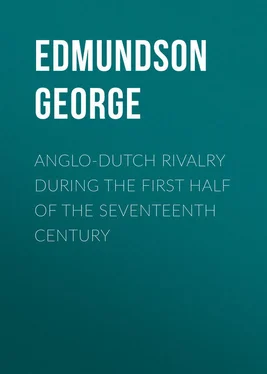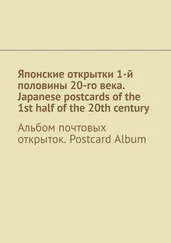George Edmundson - Anglo-Dutch Rivalry during the First Half of the Seventeenth Century
Здесь есть возможность читать онлайн «George Edmundson - Anglo-Dutch Rivalry during the First Half of the Seventeenth Century» — ознакомительный отрывок электронной книги совершенно бесплатно, а после прочтения отрывка купить полную версию. В некоторых случаях можно слушать аудио, скачать через торрент в формате fb2 и присутствует краткое содержание. Жанр: foreign_antique, foreign_prose, на английском языке. Описание произведения, (предисловие) а так же отзывы посетителей доступны на портале библиотеки ЛибКат.
- Название:Anglo-Dutch Rivalry during the First Half of the Seventeenth Century
- Автор:
- Жанр:
- Год:неизвестен
- ISBN:нет данных
- Рейтинг книги:4 / 5. Голосов: 1
-
Избранное:Добавить в избранное
- Отзывы:
-
Ваша оценка:
- 80
- 1
- 2
- 3
- 4
- 5
Anglo-Dutch Rivalry during the First Half of the Seventeenth Century: краткое содержание, описание и аннотация
Предлагаем к чтению аннотацию, описание, краткое содержание или предисловие (зависит от того, что написал сам автор книги «Anglo-Dutch Rivalry during the First Half of the Seventeenth Century»). Если вы не нашли необходимую информацию о книге — напишите в комментариях, мы постараемся отыскать её.
Anglo-Dutch Rivalry during the First Half of the Seventeenth Century — читать онлайн ознакомительный отрывок
Ниже представлен текст книги, разбитый по страницам. Система сохранения места последней прочитанной страницы, позволяет с удобством читать онлайн бесплатно книгу «Anglo-Dutch Rivalry during the First Half of the Seventeenth Century», без необходимости каждый раз заново искать на чём Вы остановились. Поставьте закладку, и сможете в любой момент перейти на страницу, на которой закончили чтение.
Интервал:
Закладка:
'With the lords of the United Provinces of the Low Countries, there exists at present perfect friendship and union; formerly he [James] used to despise them, as rebels, but now he loves and esteems them, as princes of valour and quality, an effect of the truce made with the Catholic king… Now H.M. desires and procures the preservation of the Dutch, but not a further increase of their greatness, since their forces on sea are not inferior to those of any potentate whatsoever, because that in time of war necessity has been their best mistress. Of these forces the English are not without some jealousy, seeing their own diminished, and the dominion of the sea, that they have been accustomed to hold in that part of the ocean transferred to others… In the herring fishery alone they [the Dutch] send out every year to the east coast of the Kingdom of England 1,700 vessels, in which perhaps 30,000 men are employed. 17 17 See Note A.
After the truce the King made a proclamation, that no one was allowed to fish in those parts without licence, perhaps incited by the great sums of money, that formerly the Spaniards offered Queen Elizabeth to have the user of it; but just as at that time that scheming did not succeed in despoiling the Dutch, so now these with two special ambassadors have not obtained any promise of an alteration, as he [the King] is always intent upon the conservation of his jurisdiction and the increase of the royal incomings. The King at present regards the possession of such great sea power as being in itself of great moment for the needs of England, and united with his own it could with difficulty be resisted. He holds further that these same provinces are a barrier rampart of his kingdoms, and he is interested in them through the debt of a million and a half of gold that remains to him of the sum of more than two millions already lent by Queen Elizabeth, the repayment of which is at present spread over a number of years, a portion every year. Meanwhile three principal places are pledges in the hands of his Majesty…'
The possession of these fortresses was indeed at this time placing King James in a position of no small advantage in his dealings with the States, and he was well aware of it. On the other hand, it was galling to the Dutch, now that they had compelled the Spaniard to treat with the United Provinces as if it were an independent State, to feel that two chief doors of entrance into their land were in the hands of foreign garrisons. James professed to be their good friend, and it appeared to be his interest to cultivate their alliance, but it was inevitable that his assiduous advances to gain the goodwill of Spain and to obtain the hand of an Infanta for his son should render him suspect.
II: 1610-1618
The resolve of the King in 1610 to postpone any action in the matter of his proclamation on the fisheries question seems not to have aroused any popular expression of disapproval. The English people were from the political and religious standpoint well disposed to the Dutch. What they suspected and dreaded was the King's obvious leaning to Spain. Their intense dislike to the Spanish marriage, concerning which it was common knowledge that negotiations were on foot, led them to favour a good understanding with the United Provinces. But the spectacle of the growing Dutch monopoly of the carrying trade, and the decline of English commerce in the face of these formidable rivals, could not fail before long to stir public opinion.
A succession of noteworthy pamphlets drew attention to the subject. Foremost among these, from the personality of the writer, was Ralegh's 18 18 Ralegh's Works , viii. 351-76.
Observations touching trade and commerce with the Hollanders and others, wherein is proved that our sea and land commodities serve to enrich and strengthen other countries than our own . These Observations were, as the title page informs us, presented to King James, and there are indications that the date of their presentation was about the time of the Dutch embassy of 1610. Their object was to show how Dutch trade was prospering at the expense of that of England. Ralegh pointed out in particular the immense profit derived by the Hollanders from their fishing in the British seas, and he asks why 'this great sea-business of fishing' should not be kept in English hands, and suggests that the King should appoint Commissioners to inquire into the matter, and 'forthwith set forward some scheme for preventing foreigners from reaping all the fruits of this lucrative industry on his Majesty's coasts.' He warns the King that 'the Hollanders possess already as many ships as eleven kingdoms, England being one of them', and expresses his conviction that 'they [the Hollanders] hoped to get the whole trade and shipping of Christendom into their own hands, as well for transportation, as otherwise for the command and mastery of the seas.'
Ralegh's pamphlet did not affect the King's decision to defer, for political reasons, taking any active steps concerning the fisheries, but we may well believe that the hint about 'the command and mastery of the seas' would not pass unheeded. It touched a question about which James was peculiarly sensitive. That question, though for a few years apparently dormant, was one that neither King nor people could afford to disregard. The command of the sea – then as at all times – was vital to an island power. The English were beginning to see in the Dutch not merely competitors in trade, who were ousting them from every market, but possible rivals for the dominion even of those 'narrow seas 19 19 See Note B.
' in which the Kings of England had so long claimed to have paramount sovereignty and jurisdiction. Thus a feeling of dissatisfaction and resentment gathered head which found vent, as was the custom of those days, in political pamphlet-writing. Two of these pamphlets 20 20 See Note.
, no less than that of Ralegh, call for particular notice, for they are full of material bearing upon the subject of the relations between the English and Dutch at the time of their publication, and throwing light upon the causes of the growing estrangement between the two people.
England's Way to win Wealth , by Tobias Gentleman, Fisherman and Mariner, bears the date 1614. The purpose of the writer is thoroughly practical. He sets out in great detail the statistics of the fisheries on the British coasts, and of the immense profits derived by the Hollanders from the pursuit of this industry, and he then proceeds to urge upon his countrymen to take a lesson from the foreigners, and not to neglect, as they are doing, a source of wealth which lies at their very doors. The following quotation is a good specimen of the homely vigour and directness of Gentleman's arguments; it will be seen that here, as throughout the pamphlet, they profess to be based on his own personal experience: —
'What their [the Hollanders] chiefest trade is, or their principal gold mine is well known to all merchants, that have used those parts, and to myself and all fishermen; namely, that his Majesty's seas is their chiefest, principal, and only rich treasury whereby they have so long maintained their wars, and have so greatly prospered and enriched themselves. If their little country of the United Provinces can do this (as is most manifest before our eyes they do) then what may we, his Majesty's subjects, do, if this trade of fishing were once erected among us, we having, in our own countries, sufficient store of all necessaries to accomplish the like business?.. And shall we neglect so great blessings, O slothful England and careless countrymen! Look but on these fellows, that we call the plump Hollanders, behold their diligence in fishing and our own careless negligence.' 21 21 Harleian Misc. iii, pp. 397-8.
Интервал:
Закладка:
Похожие книги на «Anglo-Dutch Rivalry during the First Half of the Seventeenth Century»
Представляем Вашему вниманию похожие книги на «Anglo-Dutch Rivalry during the First Half of the Seventeenth Century» списком для выбора. Мы отобрали схожую по названию и смыслу литературу в надежде предоставить читателям больше вариантов отыскать новые, интересные, ещё непрочитанные произведения.
Обсуждение, отзывы о книге «Anglo-Dutch Rivalry during the First Half of the Seventeenth Century» и просто собственные мнения читателей. Оставьте ваши комментарии, напишите, что Вы думаете о произведении, его смысле или главных героях. Укажите что конкретно понравилось, а что нет, и почему Вы так считаете.












